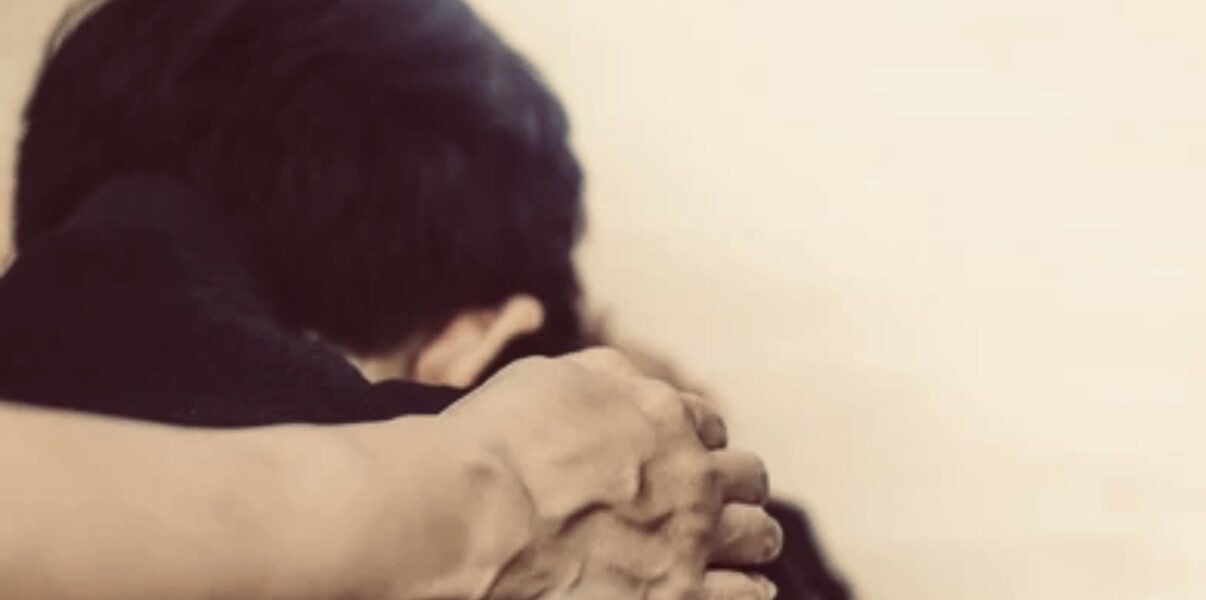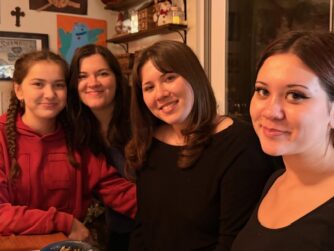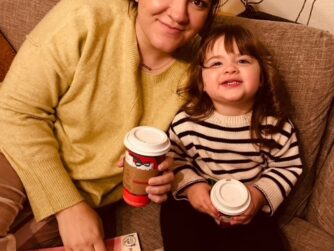For years my mom has been a public speaker.
She’s done it as long as I can remember.
Mainly, she will speak for church events, but has been asked to do it for a wide-array of other things, including graduations, auctions, and at parties, and women’s conferences.
Last year she spoke for a women’s conference that took place at a camp way out in the redwoods.
The theme for the weekend was “Grief.” A big one. I know.
It was a heavy topic that proved to be exactly what the women who came actually needed.
She heard a lot of praise for what she said.
Out of the audience, throughout that weekend, women approached her to let her know their varying personal stories on the subject.
They told her of losses that were unimaginable, and stories of survival.
They talked about loss of relationships, jobs, friends, and their homes.
They talked about grief after death.
She was shocked at some of the stories from them. They just kept coming.
So often another person’s grief would remain completely unknown unless they purposefully let you know about it.
Some of the most painful stories could have easily remained hidden.
People have the astounding ability to survive the unimaginable.
Sometimes horror stories are tucked under a soft smile and hair that’s perfectly combed.
The main purpose of her talk was on how to be with the grieving,
without needing to offer our own personal thoughts or advice to them.
She spoke on the importance of simply not feeling alone when you are going through something painful.
Every face in the audience looked like they had a personal story about the subject.
Her talk went over so well that word spread about it, and then she was asked several months ago to give the same talk today for a group of people being trained in the chaplaincy program for our local Gospel Mission.
They had just opened up a brand new facility for the homeless, and those going through various forms of recovery.
The topic of how to help the residents face whatever griefs they may be experiencing would be an important one.
How could they best reach these people?
How could they support people with literally nothing left?
She messaged me later in the day to let me know that this talk, too, had gone very well,
and I invited her to come tell me about it over dinner.
She thanked me. She said she was starving, and 20 minutes later, she walked in, and sat down.
As she ate, with tears in her eyes, she told me about how nervous she’d felt to speak today to a room full of soon-to-be chaplains for such a big, important program,
until one man came to find her afterwards with tears in his own eyes, to tell her how much what she said had touched him, and how suddenly she had felt like, even if that whole talk had been for just one person only, it would have been worth it.
He said that when he was a boy, his only brother tragically drowned at just 9 years old.
In his parents’ own grief, they had shut down, leaving him feeling abandoned by them in the days following, and responsible to manage his own devastation at losing his only brother all by himself. He told her all about his confusion, and hurt towards them.
He said he remembered spending far too much time alone.
On the day of his brother’s wake, for some reason, his father had sent him to the church first to wait there, and he remembered sitting in that completely empty and dimly lit room,
just looking at his brother laying there, dead on the table;
Just his loss, his sad thoughts, and the lonely echo.
He sat, consumed by the quiet, and the solitude, and the sadness inside,
aching and invisible, he thought,
until he felt a warm hand on his shoulder.
He turned, then, to see one of the nuns standing beside him,
just quietly placing her hand like that on his arm.
He said she never spoke a single word to him.
She just stood there like that, and let him cry, communicating without utterance that he wasn’t alone in what he was going through.
He learned that day that the most important therapy for grief is being quietly supported.
This man cried, decades later, telling my mom,
“As long as I live, I will never forget how her hand felt on my shoulder.”
There is so much power in quiet presence.
I know I need it so often from someone, myself;
Especially when life threatens to sweep me up in its chaos; And boy, is it chaotic!
There is so much healing that can take place when we silence our urge to give advice in exchange for true companionship,
even for just a few minutes.
It’s the same power behind a kind smile given to a stranger,
or in giving someone a knowing nod.
There is so much grief these days that it’s darkened our edges a bit, I fear.
They threaten to fall apart now with the slightest pressure on them.
So many people are weary, broken, and brittle.
I see it in the tired eyes of cashiers at the checkout.
I see it in the faces of other moms at the park.
I see it in comments made on social media,
and in so many news reports.
It’s been too easy for us all to turn harsh, and to start lashing.
So many of us long for softer days.
Many of us feel like we’re sitting in that church right now, too, sad, and all alone.
Can we all just sit quietly with someone sometimes as this next season approaches?
Can we remember that there is an ache that often shows up silently with the carols,
and the dinners, and the twinkle-lit homes?
There are people out there who need someone to just sit beside them;
Sometimes in person,
and sometimes metaphorically, with our support.
I hope we can remember this story of a lonely, broken boy sitting all alone in a church,
and the power of a quiet hand on his shoulder from a stranger.
She knew the truth that sometimes the most holy thing you can do in a moment is let a grieving person know they do not grieve alone.
Maybe we can remember that?
Maybe it will help heal us, too?
Grief in this upside-down life is inevitable,
but sometimes all it takes is a quiet hand on the shoulder.
Maybe, this season,
it can be our own.







